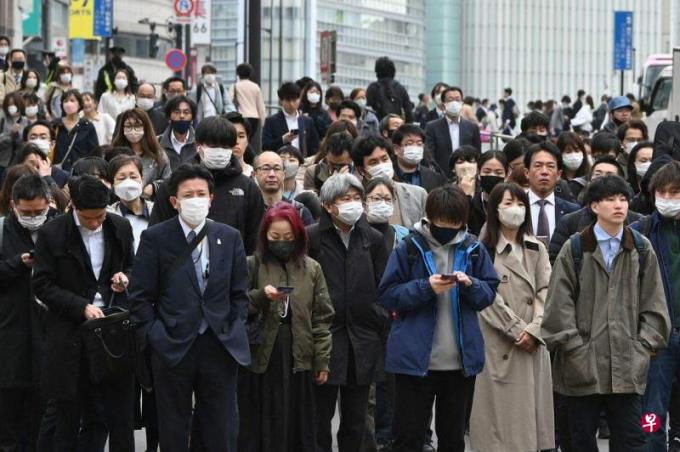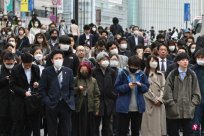
In serious shortage of labor in Japan.A large number of foreign workers will be introduced in the next year.Officials may increase the industry fields that can be issued for a long -term residence permit from the current three to 12.
The trend of aging and declining childization in Japanese society has been continued for a long time. It is a common phenomenon that people facing people in various industries are increasingly worse, and it is common for people to recruit people in catering hotels and other services.Multiple think tanks such as Japan International Union Agency, which are affiliated to the Ministry of Foreign Affairs, issued a joint report last year that if the government's average annual economic growth goal set by the government is to be obtained, it must be introduced by four times more labor by 2040.That is, 6.74 million foreign employees must be introduced.It was estimated that there were 1.72 million foreign employees in Japan at that time, that is, an increase of more than 5 million in 18 years.
Many new fields are related to the tourism industry
In order to introduce foreign employees, Japanese officials launched a "specific skill" foreign residence permit in 2019.This type of permit is divided into No. 1 and 2.No. 1 allows 12 industries to apply, but the residence period is the longest five years.Only after the residence of foreign workers with high technical requirements, shipbuilding and nursing industry, you can apply for a long -term employment No. 2 standard.
According to Japanese reports, after the Liberal Democratic Party's foreign workers' special committees on Monday (April 24), they decided to propose to expand the industry fields covered by No. 2 to 12. The goal is this year this yearAfter the details were finalized by the cabinet in June, it was implemented in April next year.
It is reported that many new areas are planned to be related to tourism, such as the aviation service industry, hotel hotel industry, catering industry, and building cleaning industry.Others include technical industries such as automobile maintenance, agricultural and fishery, food manufacturing and electronic manufacturing.
The official data quoted by the media show that there are currently 146,000 foreign workers holding specific skill permits.Among them, Vietnamese are the most, accounting for about 60 %; the rest are from Indonesia and the Philippines.Before Japan introduced this system, it only introduced foreign workers in the name of "trainee", and a total of 1.82 million people were introduced.
The chairman of the Special Committee of the Foreign Labor Special Committee Matsuya Matsuya Matsuya said: "Japan's fertility rate continues to decline, and the problem of labor shortage will only become more and more serious. Today, the yen depreciates.Faced with greater competition. "
According to the Asahi Shimbun, the Liberal Democratic Party's Special Committee is discussing how to attract foreign workers at the level of life.This includes paying attention to their rights and interests, and it is also comfortable to make them feel that living in Japan or even raising children.However, there is an opposition from the Liberal Democratic Party that is in disguise to absorb immigrants in disguise.
The report of Nikkei pointed out that the continuous reduction of the population has made Japanese companies feel anxious and worried that the labor gap will eventually cause Japan to lose its competitiveness.Enterprises are also paying attention to the tendency to fight for foreign talents in Asia.For example, Taiwan has given non -technical foreign workers for 12 years of residence; South Korea's immigration regulations are more loose. As long as they have a certain income and language ability, they can obtain permanent residence rights.



